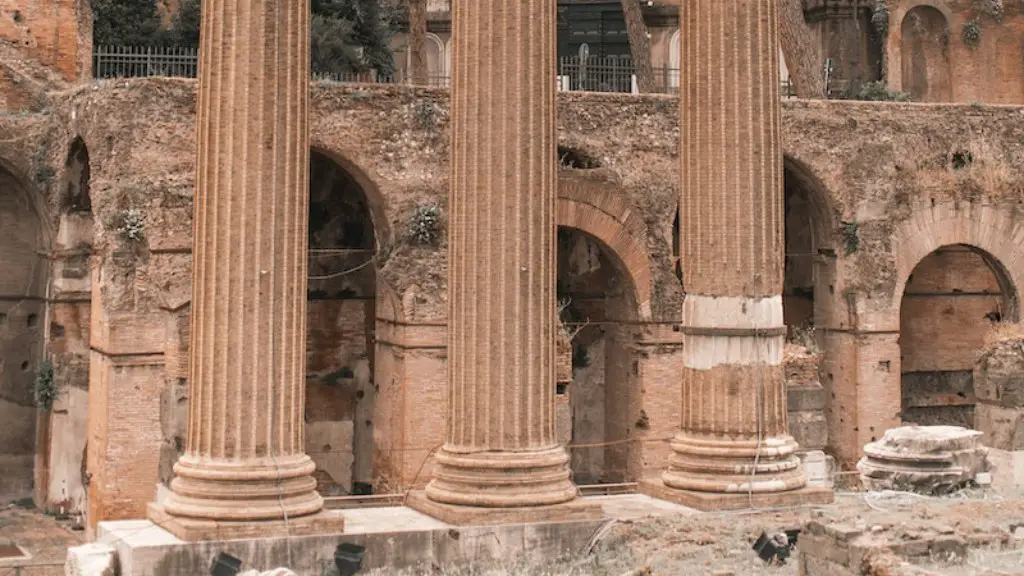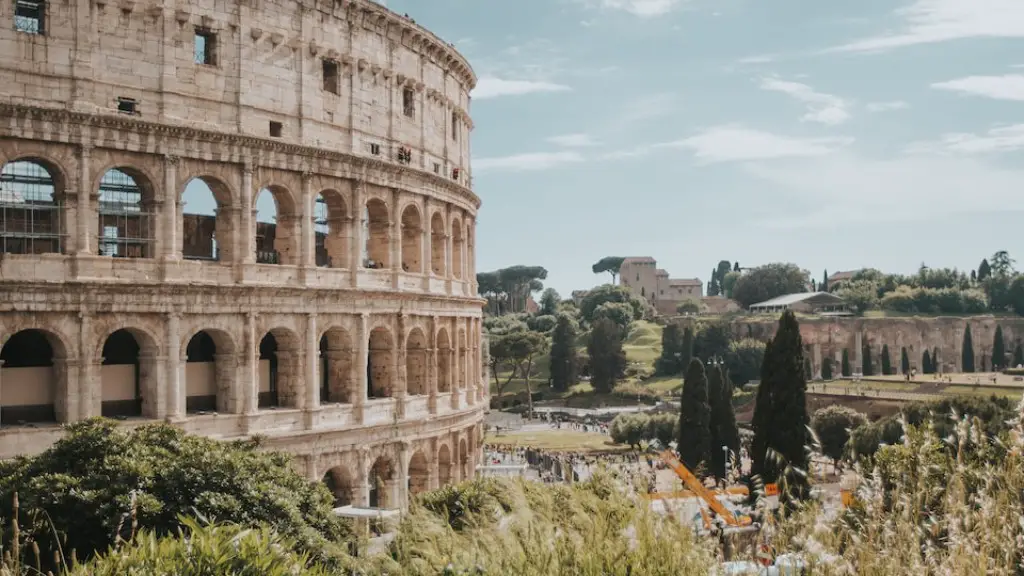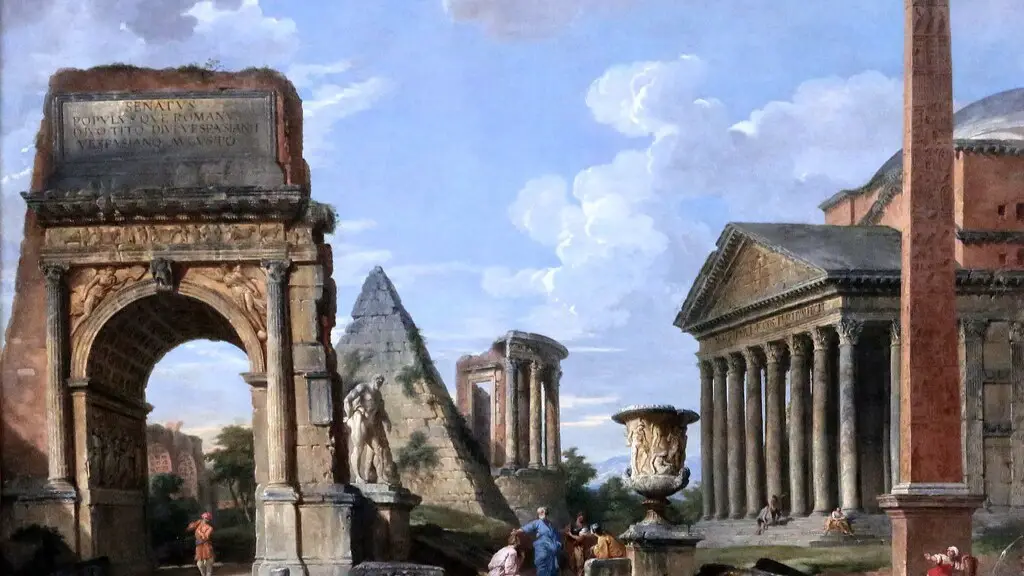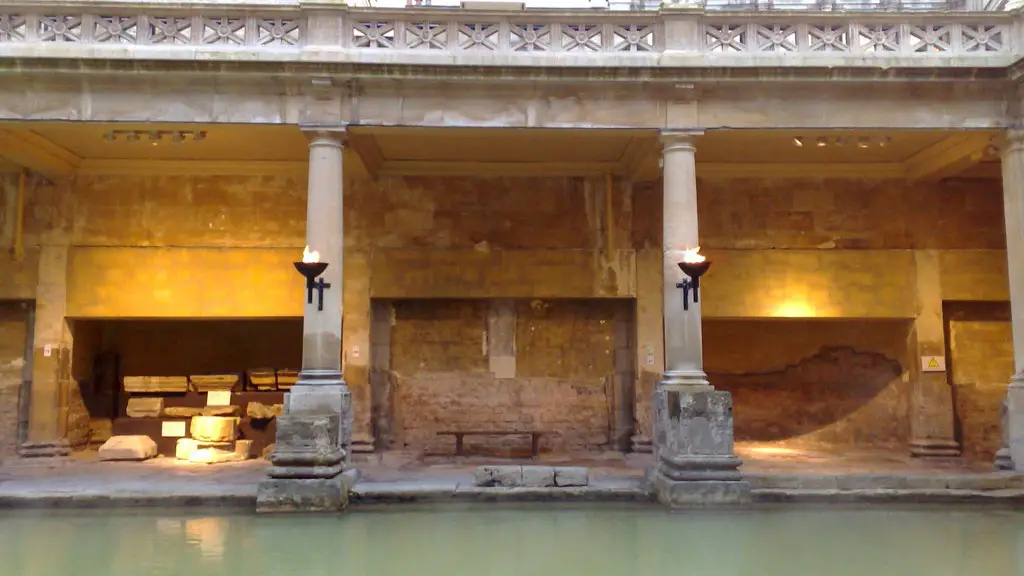The Role of Rhetoric in Ancient Rome
Rhetoric was an essential element of culture in ancient Rome, with its influence extending across literary, political, and social spheres. In a world without mass media and instant global communications, rhetoric was the most powerful tool available for the people of ancient Rome to communicate and persuade. As such, rhetoric played a pivotal role in Roman society, allowing for the powerful and influential voices of the period to shape the culture of the day.
The importance of rhetoric in Roman culture was such that it was considered one of the three pillars of Roman education, along with grammar and logic. Rhetoric was considered an art that enabled effective communication and a means for individuals to elevate their social standing within society. This was especially true for those wanting a role in public life, such as court lawyers, public officials, and more.
Rhetoric was essential for any public speaker, as it could be used to create a deep emotional response in an audience. The most famous Roman rhetoricians, such as Cicero and Quintilian, developed an art of eloquently spoken and well-crafted words that could capture the attention and sympathy of an audience. In addition, they developed the art of argumentation, in which they could use persuasive words and language to draw logical conclusions and reinforce their arguments. This made rhetoric an essential tool for public debate and problem-solving.
Rhetoric was also used for literary purposes and to express emotions and feelings in writing. Poetry and prose were often used to tell stories, express opinions, and reflect on the state of the world through the use of vivid imagery and evocative language. As such, rhetoric allowed people to express themselves, both in formal and informal settings.
In addition to its use in literature, rhetoric was also used as a form of entertainment in ancient Rome. Rhetorical competitions were held in which competitors would deliver a set of prepared speeches. The audience would then decide which speaker had made the most persuasive argument and award them the victory. This was a popular form of entertainment and proved to be a great opportunity for people to show off their rhetorical skills.
In conclusion, rhetoric was an integral part of the Roman culture. It enabled people to effectively communicate, influence, and persuade their fellow citizens. It also offered a means of entertainment and allowed people to express themselves through literature. As such, rhetoric played a major role in Roman life and would shape the world of today.
Rhetoric in Politics
Politicians in Ancient Rome used rhetoric for several reasons including persuasion and to achieve a political goal. As the people of ancient Rome did not have access to modern technology and mass media, communication through rhetoric was a key way to broadcast a political opinion or announce a ruling or law. Through the use of persuasive oratory and the power of language, politicians could manipulate public opinion and shape the way citizens saw their society.
The art of persuasion was also utilised by politicians who were looking to win favour with the people. Rhetoric allowed them to present ideas, policies, and reforms in such a way that would gain the favour of the people. Rhetoric could also be used to craft eloquent speeches to gain support and rally the people behind a shared cause.
In addition, rhetoric enabled politicians to craft alliances and form powerful relationships with other individuals and groups. This was essential in a society where politics revolved around patronage. Skillful rhetoric could lead to successful negotiations, which in turn could lead to powerful and influential alliances.
Rhetoric was also used by politicians to pass laws and increase their own political power. By making use of vivid and persuasive language, they could craft speeches that would be approved by the general public and successfully pass laws. This enabled the Roman political elite to establish their own power base and wield control within the Roman Empire.
Finally, rhetoric enabled politicians to protect their reputations and maintain their political credibility. The ability to craft a powerful message could sway people’s opinions and ensure that their political rivalries would not harm them in the public eye.
Rhetoric and the Law
Rhetoric played an important role in the legal system of Ancient Rome. Lawyers, who were known as orators, were trained in both rhetoric and law in order to effectively defend their clients, present legal arguments, and win over a jury or judge. In addition, rhetoric enabled orators to craft persuasive and effective speeches that could sway a jury or judge in favour of their client.
Rhetoric was also used to develop legal arguments and draw logical conclusions. By carefully constructing arguments using persuasive language and imagery, orators were able to paint a vivid picture of their client’s innocence or guilt and persuade the court to rule in their favour.
Rhetoric enabled orators to also make use of a variety of rhetorical devices in their arguments. These included rhetorical questions, metaphors, analogies and other tactics that would help an orator to more effectively make their case. Through the creative use of rhetoric, lawyers were able to craft compelling arguments that could sway the court in their client’s favour.
In addition, rhetoric was used to appeal to emotion and sway juries in terms of sentencing. By presenting a client in the best possible light, an orator could evoke a sense of sympathy and mercy in a jury and ensure that their client received the most lenient sentence possible.
Finally, rhetoric could be used to combat the prosecution’s arguments and challenge the evidence presented against a defendant. By using persuasive language and crafting an effective argument, an orator could counter the prosecution’s statements and convince the court to favour their client.
The Impact of Rhetoric on Roman Society
Rhetoric had a wide-reaching impact on Roman society. It enabled citizens to communicate their ideas and beliefs, persuade fellow citizens, and form powerful alliances. It also enabled lawyers to craft persuasive arguments and pass laws more effectively. In addition, it played a role in entertainment in the form of public speech competitions and allowed individuals to express themselves through literature.
Not only did rhetoric have an influence on the people of ancient Rome, but it also left a legacy that has had an influence on modern rhetoric. Even today, many of the techniques and strategies used by the great Roman orators are still employed in public debates, court cases, and political campaigns. It is clear that rhetoric played a major role in ancient Roman society, and its influence can still be felt in modern political discourse.
The Legacy of Rhetoric
The influence of rhetoric can still be seen in modern society today. Many of the rhetorical strategies and techniques developed in ancient Rome are still employed in modern public discourse. Politicians, lawyers, and public speakers all utilise the power of rhetoric to communicate effectively and sway public opinion. This makes it clear that rhetoric played an essential role in the culture of ancient Rome and its legacy can still be seen today.
In addition, the principles and techniques of rhetoric are still taught in educational institutions around the world. In many schools and universities, rhetoric is taught as one of the three core elements of classical education, alongside grammar and logic. This demonstrates that rhetoric still holds an important place in modern culture and provides evidence of the continuing legacy of rhetoric in the world today.
The legacy of rhetoric can also be seen in popular culture. The power of rhetoric and persuasion can be seen in films and television, in which characters use powerful words to shape the opinions and emotions of their audiences. Furthermore, popular music and poetry often demonstrate the power of rhetoric to evoke emotion and create a strong connection with an audience.
Finally, rhetoric can also be seen in everyday life. Rhetoric is used to share ideas, to persuade and influence, and even to prevent conflict. In the modern world, rhetoric is still one of the most important skills we can learn in order to communicate effectively and make our voices heard.
Conclusion
It is clear that rhetoric played an essential role in the culture of ancient Rome. It enabled people to communicate more effectively, influence public opinion, and persuade their fellow citizens. Its importance was such that it became one of the three focal points of Roman education. Furthermore, its legacy can still be seen in modern society, with rhetoric still being used by politicians and lawyers to achieve their goals and to share their ideas.





